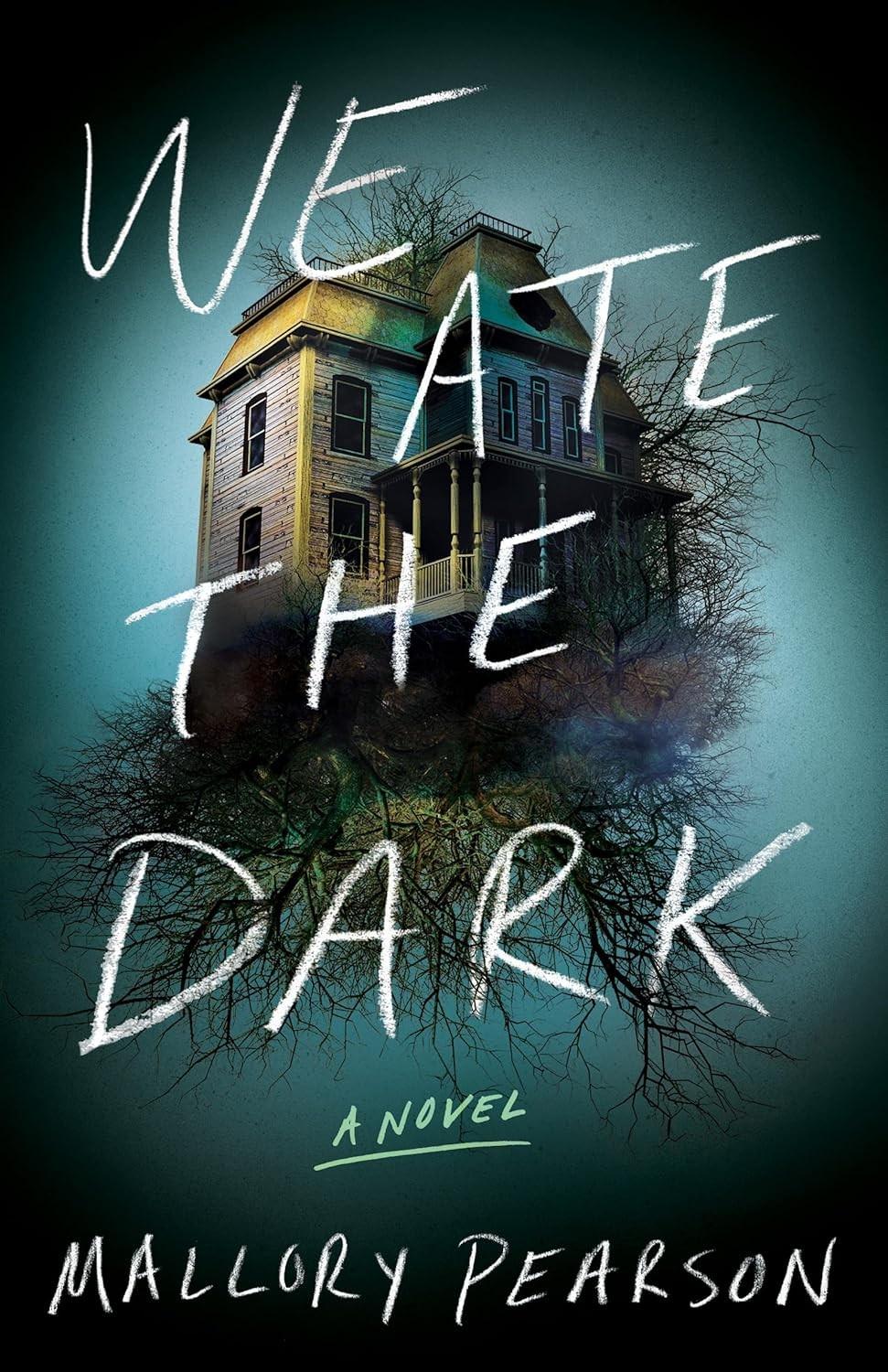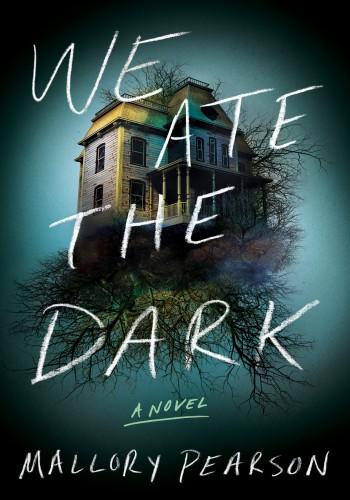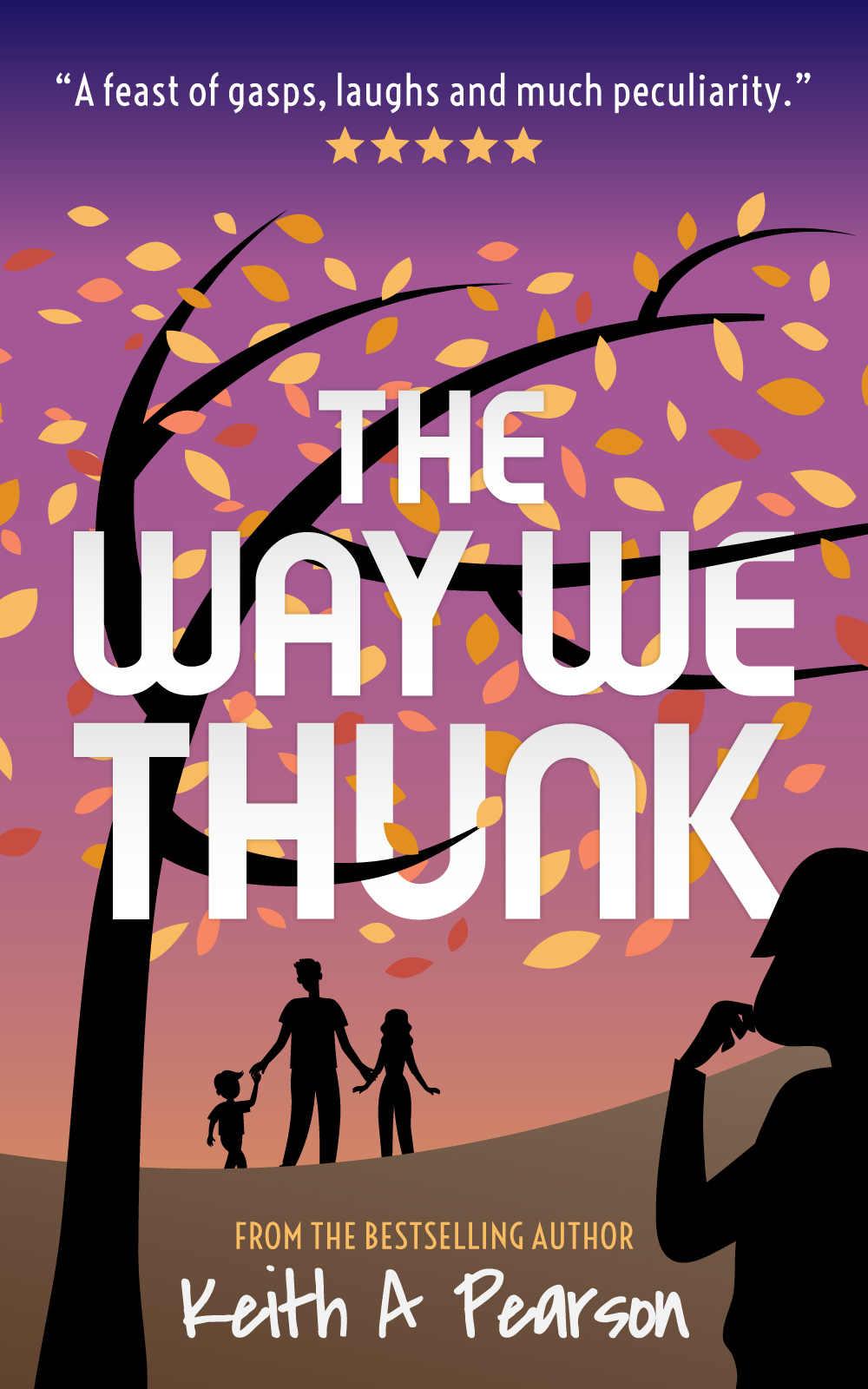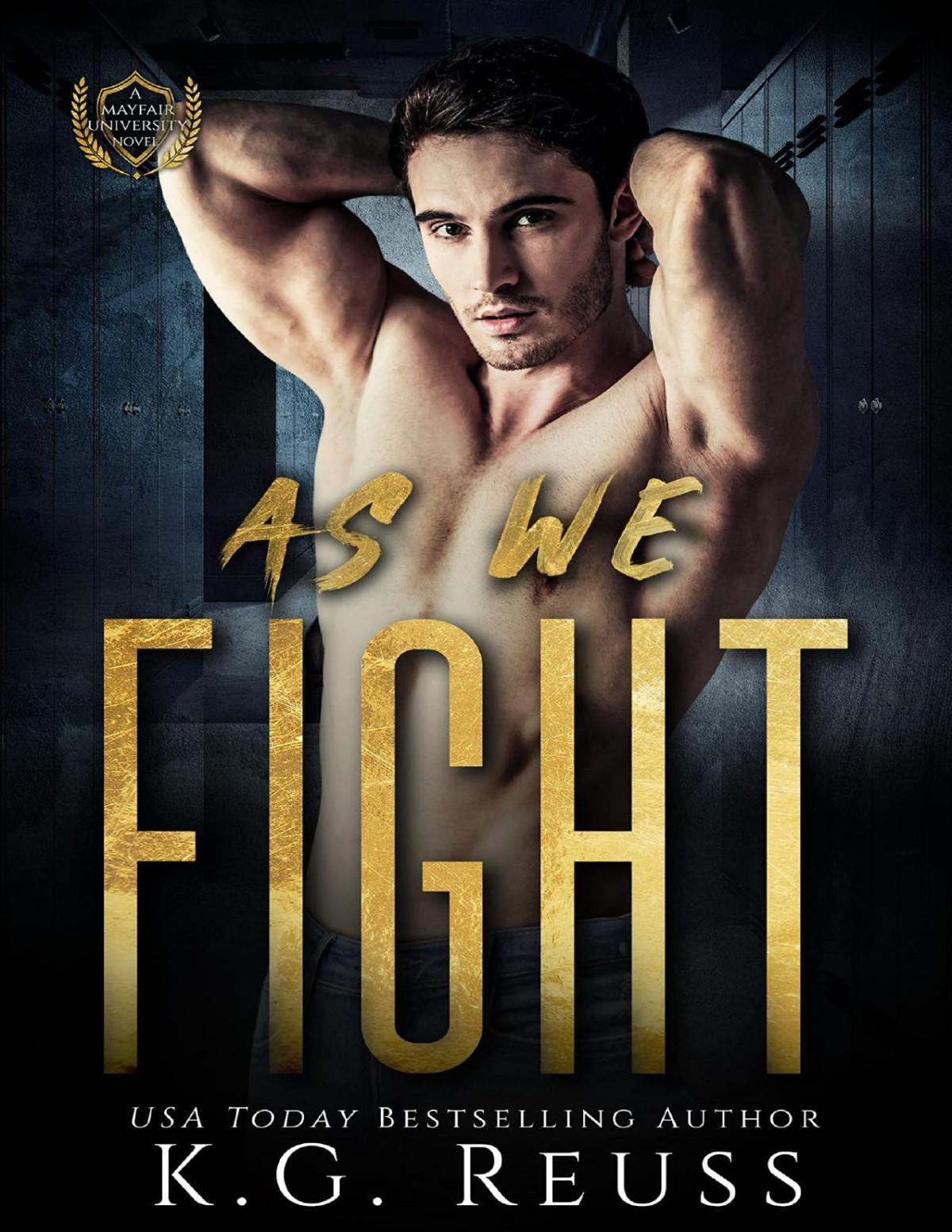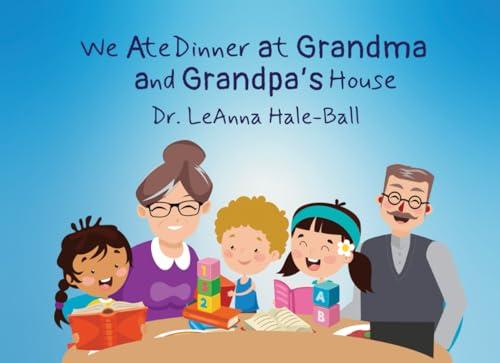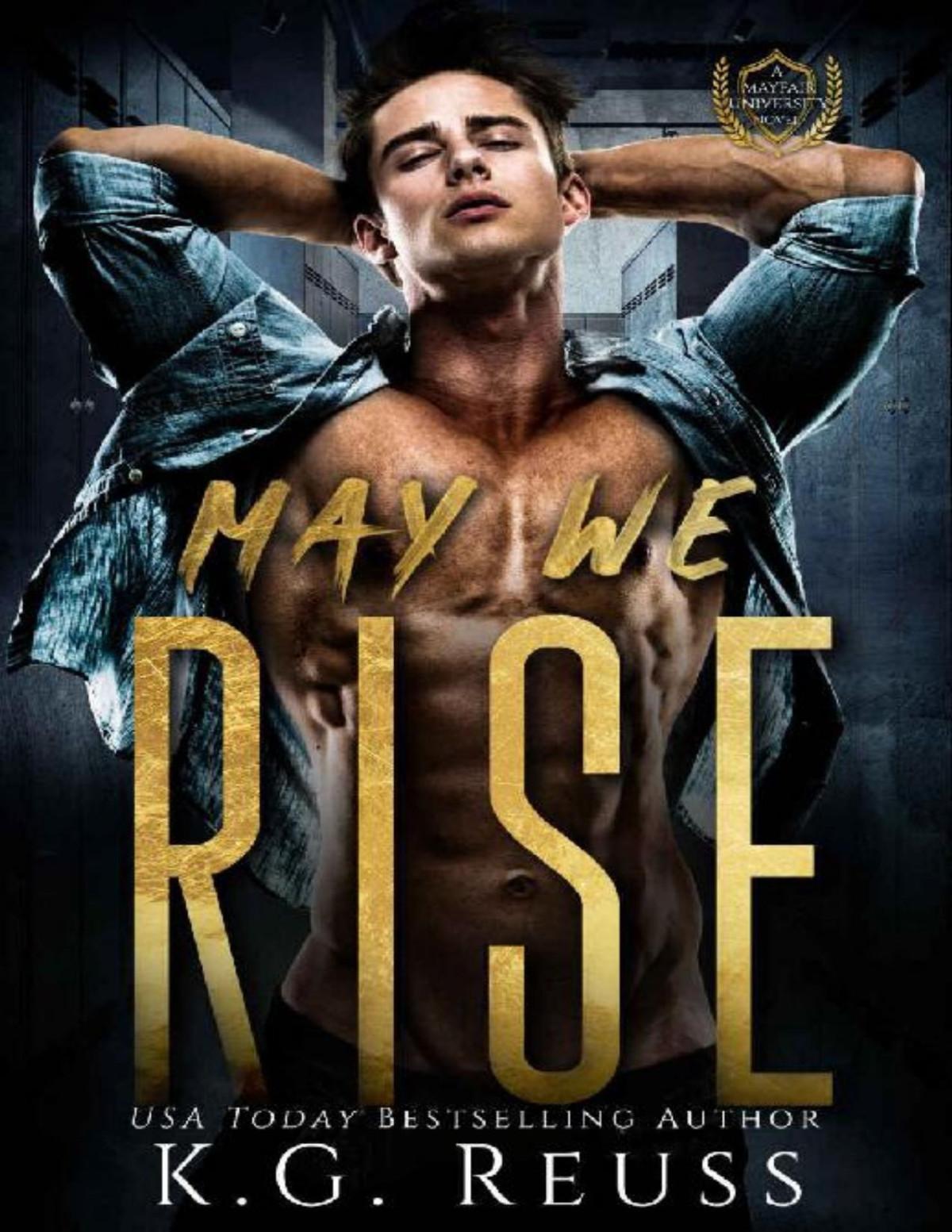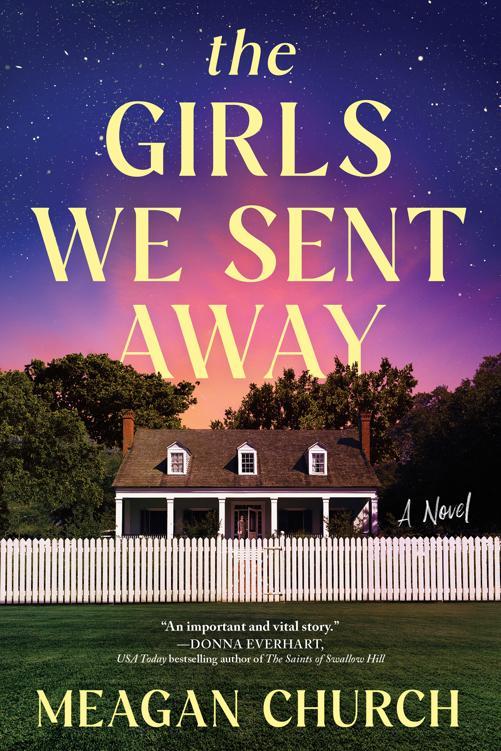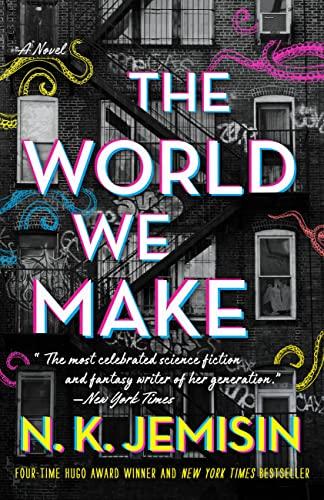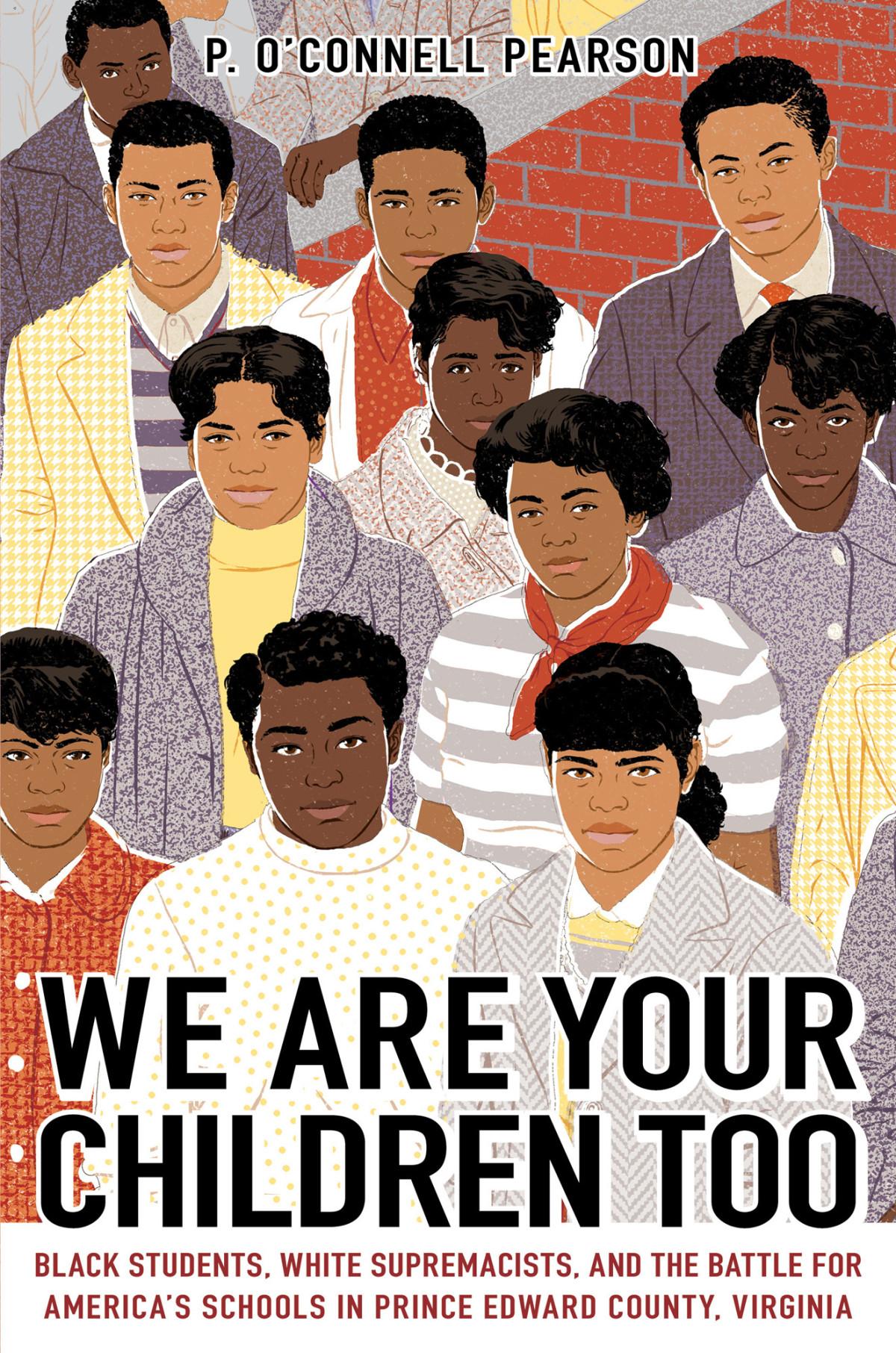Visit to download the full and correct content document: https://ebookmass.com/product/we-ate-the-dark-a-novel-mallory-pearson/
More products digital (pdf, epub, mobi) instant download maybe you interests ...
We Ate the Dark Mallory Pearson
https://ebookmass.com/product/we-ate-the-dark-mallory-pearson/
The Way We Thunk Keith A Pearson
https://ebookmass.com/product/the-way-we-thunk-keith-a-pearson/
As We Fight: A Dark College Romance (A Mayfair University Novel Book 2) K.G. Reuss
https://ebookmass.com/product/as-we-fight-a-dark-college-romancea-mayfair-university-novel-book-2-k-g-reuss/
We Ate Dinner at Grandma and Grandpa’s House Hale-Ball
https://ebookmass.com/product/we-ate-dinner-at-grandma-andgrandpas-house-hale-ball/
May We Rise: A Dark College Bully Romance (A Mayfair University Novel Book 1) K.G. Reuss
https://ebookmass.com/product/may-we-rise-a-dark-college-bullyromance-a-mayfair-university-novel-book-1-k-g-reuss/
The Girls We Sent Away: A Novel Church
https://ebookmass.com/product/the-girls-we-sent-away-a-novelchurch/
The World We Make: A Novel (The Great Cities #2) N. K.
Jemisin
https://ebookmass.com/product/the-world-we-make-a-novel-thegreat-cities-2-n-k-jemisin/
Dark Wine at Dawn (A Hill Vampire Novel Book 9) Jenna
Barwin
https://ebookmass.com/product/dark-wine-at-dawn-a-hill-vampirenovel-book-9-jenna-barwin-3/
We Are Your Children Too P. O'Connell Pearson
https://ebookmass.com/product/we-are-your-children-too-poconnell-pearson/
This is a work of fiction. Names, characters, organizations, places, events, and incidents are either products of the author’s imagination or are used fictitiously. Otherwise, any resemblance to actual persons, living or dead, is purely coincidental.
Text copyright © 2024 by Mallory Pearson
All rights reserved.
No part of this book may be reproduced, or stored in a retrieval system, or transmitted in any form or by any means, electronic, mechanical, photocopying, recording, or otherwise, without express written permission of the publisher.
Published by 47North, Seattle www.apub.com
Amazon, the Amazon logo, and 47North are trademarks of Amazon.com, Inc., or its affiliates.
Excerpt from “Possession” from the collection AttheGate © 1995 by Martha Rhodes. Reprinted with permission of the author. All rights reserved.
ISBN-13: 9781662515408 (paperback)
ISBN-13: 9781662515392 (digital)
Cover design by Caroline Teagle Johnson
Cover image: © Victor Habbick / Arcangel
Formyfamily,bloodandfound,chosenandbound. Wemakemagictogether .
Start Reading
Contents
Prologue THE HOUSE HAS A MOUTH
1 THE BIRD HAS A WAY WITH WORDS
2 TO HAVE MORE THAN ONE HEART
3 YELLOW AS AN EAR OF CORN
4 MOUNTAINS WITH DEEP POCKETS
5 THE HEN HOUSE AND ITS UNSTEADY LEGS
6 ROTTEN LIKE FALLEN FRUIT
7 CELLAR, PIT, GRAVE FOR A WITCH
8 PEACH, PEAR, PLUM
9 AND I BEG FOR SLEEP
10 BUT RECEIVE ONLY LIFE
11 FAMILIAR AS HER OWN FACE
12 A CAVERN SHAPED LIKE A HEAD
13 THE RATTLED LINES OF ROTTED WOOD
14 FLAME WITH FLAME, PIOUS WITH PROFANE
15 HALTED BY COMING WIND
16 TRAMPLED UNDERGROUND LIKE SWEET SILK
17 DROOPING, ALL THE BIRCHES
18 LET THEM ARM AND LET THEM TUMBLE
19 SILVER MOON SLIVERS
20 SPLIT-STRING PUPPET
21 THE REEDY PROMISE OF A BROKEN JAW
22 SONECHKA AND HER LIKABLE BIRDS
23 NAMES AND THEIR MYSTERIOUS ORIGINS
24 WORSHIPPED ONE DAY ON ETERNAL ALTARS
25 MASHENKA, MASTER MASK MAKER
26 A HEART FOR A HEART, ENTRAILS FOR ENTRAILS
27 DRIVE FROM MY HEART THIS TENDER TERROR
28 ANYTHING CRACKED WILL SHATTER AT A TOUCH
29 UNSPOILED BY THE AXE
30 WHOM YOU PROMISED DOMINION
31 CONCEIVE OF A VILE HOPE
32 EVEN THE BEASTS COULD BARELY FIND IT
33 UPROOTED SOIL THEN AT LAST GLIMPSED THE SUN
34 LONGING IS THE DREAM KILLER
35 THE ANCIENTS CALLED HER CHAOS
36 THE STARS SUNK BENEATH THE EARTH
37 THE SWEET BLINK OF VERTIGO
38 EVERYTHING IMAGINARY, EVEN IF LOVED
39 HER HEART BOUND WITH IVY
40 PRELUDE TO THE CRASH
41 A WOMAN WILL BUILD A NEW WORLD
42 SECRETS SEWN IN FRAYING CLOTH
43 THE CRUX OF THE WORLD
44 TREE-BOUND, STAR-CLUTCHED
45 ARCHAIC MEMORIES OF THE DAISY FIELD
46 THE HEART BEATING BENEATH THE FLOOR
47 PANG AND PANG AND PANG AND PANG
48 THE CROOKED MASTER OF THE DARKEST CORNER
49 MOUNTAINS TO MOVE, MILES TO EAT
50 SALT THE EARTH, LICK THE PALM CLEAN
51 SÉANCE FOR WISHING
52 LURE THE VOICE DIVINE
53 HER HAIR FALLING DOWN HER BACK
54 THE SPIRIT RIOTS AND THE BODY GLOWS ACKNOWLEDGMENTS
About the Author
Show her you’ve discovered all her holy spots and watch her try to find another, deeper forest. Everything she’s kept from you is yours now: these frilly private things, this tiny book of screams. Possession,MarthaRhodes
Prologue
THE HOUSE HAS A MOUTH
Between two rolling mountains, split like a lip, a dirt road snakes its way through the trees to a leering house. Something has knocked the windows from their panes, leaving behind black-eyed shells against rotten gray siding. The house’s lovely peaks and spires crumble into suggestions. Black holes pock the roof and leave room for birds to nest. The fractured foundation bows, a slumped animal, a hunted thing caught with an arrow in its back. Wood peels away from the framework like curls of bark from a dead tree.
Once, someone swept the porch and its threshold, hung wreaths in doorways and star-colored lights from the eaves to banish the dark. Now the ceilings sag swollen with water. Floorboards buck like teeth in a freshly punched jaw. Whole rooms cave into rubble, green growth reclaiming the structure where it can cut its way through the remnants. Empty. Abandoned.
Down the black road comes a boyish call, tossed between the mouths of men like howling wolves. Shoes eat up gravel and trample grass thirsty for rain. A great crack echoes acres away when a stone lofts through a remaining pane of glass, the sound of a tree felled by lightning.
Miles from the house someone might hear the boom and think thunder, might watch murky clouds roll in behind their eyes. But the night remains clear of tapering spring rain. Wisps of condensation cling to the moon. A warm breeze overturns the leaves and promises coming summer, sage bellies cast upward toward the midnight glow.
Down the road an old church’s bell tolls, shakes off its sleep. Its steeple is poised high and mighty; a crooked little cross atop it bends like an acrobat prepared to fly. Even the fireflies hold their breath and extinguish their lights, as if waiting
to be found out. But at this time of night the town sleeps on with shutters buttoned up and doors latched shut.
Awake and alive, the group falls upon the house. If watched from that leaning cross, high above the world where the tops of trees shine dark and oily, they would scuttle and crawl, innumerable beetles upon a corpse.
“This place creeps me the fuck out,” one of them says, neatly stepping into a rotten section of the porch and yelping when his ankle almost catches, the sound of his fear bird-shrill. Against intentional self-determination his mind recalls the last time the house bit someone, and the gnawed meat of the leg as flesh plunged through boards. He watches Tommy walk before him with a limp that hasn’t faded, even after all this time.
Alex steps into a room full of sheet-ghost apparitions—and exhales when his brain makes sense of it, the specters just covered furniture jutting like white mountains. Some of the sheets have been tugged away or shredded into nests. Others are stained after years of rain dripping through the pocked roof. The ceiling bows close where it hasn’t already collapsed, and every still-standing doorway is a gaping mouth.
The rest of the group piles in behind them. The house rocks with their disturbance. Their casual jeers make Alex feel selfconscious, overtly aware of the years the rest of the guys have on him—time they’ve spent engaging in familiar rowdiness, together, buoyed by Loring and its enduring nostalgia. But if his memory is correct, it’s been nearly five years since this house’s last visitor, when they boarded it up in the sheriff’s final walkthrough. Now it shudders with the weight of their life, overstimulated by their laughter, their spitting, their swallowing, the ravenous way they tear open boarded entryways.
“Watch it,” Tommy calls, and Alex looks down at the place where the floor slopes away from them. Black splintered stars wait in the pockets where rot claims the old construction.
Alex was never afraid of the dark, not even as a kid, but anxiety strikes hard at the sight. A vision of being chewed up by the wooden teeth of the house races through him, a new pulse.
His mind betrays him again—Tommy’s calf torn to shreds that final innocent summer, blood coating his pant leg so thoroughly that Alex thought the denim might be red. He remembers the anguished gasp of Tommy’s open mouth as it looked like the crumbling house itself cleanly snapped the bone. Up until that moment, Tommy and his best friend, Lucas Glasswell, had been invincible stars in Alex’s sky, with the kind of golden popularity Alex always eagerly hoped they might pass down to a keen kid.
“Thanks,” Alex says, when his voice finally crawls its way back into his mouth.
He hadn’t wanted to come. The last time he saw the house was enough of a scar to convince him to turn down the invitation, repeatedly. But Tommy had asked him more than once, and Tommy never asks for anything.
“No one has been brave enough to go inside that house in years. If I can do it, you can grow the hell up and join,” he had rallied, cuffing Alex on the shoulder and favoring his left leg with the swing. “Besides, what else are you going to do? Sit on your ass at home?”
Alex had planned on sitting on his ass at home. In two weeks, he’ll graduate high school, and the late Loring spring is already warming in a way that makes Alex lazy with contentment. By June his time will be his again—long days spent swimming until he’s so thirsty he considers drinking lake water, nights stretched out by getting drunk in Tommy’s basement while the others pass controllers around to play something loud and violent, sleepy afternoons working at the gas station, where the only customers are truckers looking for something hot to eat and respite from the baking sun. The airconditioning churning everything slow and dormant, katydids and cicadas a pale white noise even with the windows shut, sleep coming easier with the sound. Wasn’t that what summer was for? Rotting away on a couch that molds itself to the shape of your body, watching reruns of reality TV until you can feel bits of your mind melting through your ears? He’d get his life together when the leaves fell again.
At home, things were safe and comfortable, and he could eat his shitty food and watch his shitty TV and avoid the copper tang that clung to Loring in the form of faded missing posters stapled to telephone poles. He could turn from the face of his childhood pinned to coffee shop notice boards, ignore abandoned cars left to die in overgrown fields, sleep without seeing things in crepuscular corners. He could leave the cornfields dry and brown, nodding under pale sun.
If he pretended the house no longer existed, there was peace. It lived on only through folklore—Once, it held a family. No, onceitheldthesickandthedying.No, onceitwashometo awitch,andshewassohungryforaheart.Shecookedthefirst person she saw. She split them down the middle and ate the splinteredmessitmade.
Could a house hold that? It was all just energy—clinging, sticky, material. Could the shape of a structure remember the hurt administered within it?
Logic said no. But Alex had seen the place fester watched it unfold in front of him at a bonfire, years ago, when the fight erupted and his sister looked at him across rising flames like it was his fault the night had gone to shit. How was he supposed to know that someone would get hurt? That the house would moan like a dying animal? That they’d go running through the trees, flying fast enough to steal the breath from their chests before whatever hunted them could catch up? That his sister’s friend would disappear—just like that, never to be seen again?
It was all in the past, just like the memory. Just like Alex’s chances of a lazy summer before he left Loring behind for good. Outside, frogs croak rich, low sounds. The noise drifts in through the punched-out windows and settles over the dusty remains of the house. Down a hallway someone whoops again. Alex rolls his shoulders to pretend he didn’t jump.
“Holy shit,” Tommy calls. Alex sidesteps a crouching end table with a cracked leg and a painting of sunflowers that someone spray-painted over. Now it’s a painting of sunflowers and the words SSATANN WAS HHEREE in furious, violent red.
Alex wonders how long the words have been there—he can’t recall them in the glassy memories of the house his younger mind clings to, all clouded by the posturing . . . Five years since he was thirteen and attempting to prove his bravery by standing in front of that bonfire, the last place he should have been. Five years since they taped the house off and stationed a patrol on the weekends to keep boys like him away from it. He inhales, smells distant smoke.
“C’mere and look at this,” Tommy calls. “I knew there was something in here.”
There’s a dim doorway at the end of the hall. Jagged spears of wood, appearing to have once been the upstairs floor, now block the entrance. Alex picks his way through the mess and wishes his phone wasn’t dead, wishes he didn’t have to rely so much on the dim white beam coming from Tommy’s. The gloom makes animals out of every penumbral corner, amplifies every crack and groan and pop. He thinks about the hole he nearly stepped into. Panic seizes his heart all over again.
Tommy turns. “Help me move this. I want to go in.”
Alex fights the urge to make a rude gesture behind Tommy’s back as he hoists moldy boards away. The ceiling is close enough that Alex has to duck as he follows. Beyond the black doorway, something moves—an animal maybe, or the cast shape of his body making shadow puppets on the wall. He focuses on the ground instead and obeys Tommy’s grunts for help. They kick aside a pile of debris, centipedes scrambling away and the house wheezing with their effort.
Alex steps over detritus into what was once a kitchen. Beer cans make dioramas of Appalachia across the floor, gleaming blue and white under the pale glow of Tommy’s phone. Tommy bends low to peer at something and Alex gingerly steps closer, nearly sliding out of his skin when he catches someone staring back at him in the dusk—but it’s just a mirror, cracked and dirty, leaned up against the wall.
“It’s like a museum for every pre-disaster party,” Tommy says. “I’d bet anything that no one’s been in here since I fucked
up my leg.” His beam jumps around the room, landing on countertops collapsing beneath settled dirt. The light stops on someone standing in the middle of the room.
Alex almost humiliates himself with a scream, but he’s already embarrassed enough, so he kills the sound in his throat as his eyes adjust. Not someone. Not skin but bark, gnarled and textured, thick and old. A tree, growing in the middle of the house, warped like a hunching body.
“How?” Alex whispers.
“This is wild,” Tommy says, laughing. He kicks a pile of cans and Alex flinches at the metallic sound, a shrapnel echo. He spins to look over his shoulder, suddenly feeling someone’s eyes on his back, but finds only the empty doorway again.
“We should head home,” he says, hating himself for his meekness. “Clearly this place is about to collapse.”
But against his own will Alex keeps moving, too afraid to be left behind. Roots twist through the floor in jagged outlines where they splintered the boards. He wonders if Tommy heard him.
The light flickers again as Tommy circles the tree. Alex watches his grin fall away.
Down the hall someone screams, “Light it up, Briggs!” A resulting crash echoes around them, followed by swelling laughter. Alex flinches. Tommy’s mouth drops open, then presses shut again, a marionette tugged alive by his brain.
Alex doesn’t want to know, doesn’t want to see it, but as Tommy calls his name, his voice shatters around the sound of it. Alex steps over roots. He tries not to think about the reverberation of footsteps behind him, like something else is trying to glimpse past the space he takes up.
There is a gouge in the tree where the bark hollows out and gives way to indistinct darkness. The cavern’s edges are stained with a thick, sap-like liquid, black as blood. Deep slices in the trunk almost shimmer, coagulating, and the marks slide all the way down to the floor where there are—
Petals? Candle stubs? Black slashes like wounds in the bark, like someone had come at it with an axe and failed to fell it? Sickness rises in him. He swallows a few times and feels air lodge in his throat.
“Is that—” Alex starts, the words clipping their own wings. In the shell of the tree, a skeleton stands. Stands is the wrong word, but Alex can’t quite figure out what his brain is trying to tell him, a misalignment of neurons. There a skeleton stands. Cowers. Sleeps. Rots.
The tree snuggles up against the corpse with curling bark and new branches. It’s just the natural progression of growth, really, but something about it is more than alive, cognizant of what the trunk holds. The bones are stark and white with snaking black patterns, like the sap just kept dripping, sickly and putrid. With horror, he recognizes the crumbling connections between delicate foot bones tucked underneath where the skeleton tried to curl up, fetal and afraid. Tattered remnants of a pocked shirt cling to the bones. Part of the skull is cracked like the thin veneer of an eggshell, and its dirty white sheen blends into the wood.
Alex sees spots at the corners of his vision. He blinks them into motes of gray.
“Jesus—we need to tell Lucas.” Tommy’s voice sounds a step behind his own thoughts. “Do you think it’s her?”
Alex can still picture the missing posters around town, but now the girl’s smiling face is replaced by that splintered skull, the collar of her shirt torn and bloody. He turns away, exhales hard through his nose.
When he looks again the skull is nearly smiling at him with straight and shattered teeth. Down the hall someone swears again and the chorus erupts in laughter, background music in the skipping track of Alex’s mind.
The floor creaks beneath him and his heart doubles its speed. He steps back on trembling legs, reaching for anything to hold on to. He needs to get away. Away from Tommy, away from the tree, away from the skeleton.
His lungs swell, preparing to cry for help, and in the dun of the room something exhales against his cheek. Across the moon-bleached fields of corn, the church bell thrums. The crooked cross tilts another inch toward its demise.
THE BIRD HAS A WAY WITH WORDS
Frances Jude Lyon swung her fist down and split the head in two.
The clay came apart easily, the bust she’d spent the last hour sculpting now nothing more than a caved-in face and drooping shoulders. The eyes veered in dissident directions. Its mouth mirrored a frown back at her. She dug her thumbs into the cheekbones, left tracks for tears to slide down.
There was a certain art to ruination. By rendering the piece unbearable, she could go back to the beginning and let muscle memory take over. That’s what Frankie’s mother told her, at least, and she had only been wrong a few times. The faults could be forgiven.
She dunked her sponge in the cup of reddened water set up beside her ceramic wheel and squeezed it over the skull. Terracotta sludge caught and slipped down to the jaw, exactly where she had hoped it might.
When Frankie pictured her home, she thought of water.
It wasn’t necessarily a sensible thought. The mountains slept around her, ever swollen and cornflower blue. They were close enough to the studio to soak up any chance of evening light and prominent enough to be distorted by the warped glass of the front windows. Tourists came from all over the East to see them. In the fall they were a national treasure, alight in a million shades of sunrise, and in the summer they were passage for hikers seeking respite. Their outline was printed across the postcards Frankie had so carefully aligned beside the register, with a little gold star marking the valley that raised her.
But it was the water that mattered most to Frankie. The deep green of the stagnant lake behind Oph’s farmhouse was the color of her heart after dark. The sound of lapping shoreline against loamy clay eased her every anxiety. Some nights when sleep wouldn’t come, Sofia on her mind and her heart hurting
like a paper cut, she’d imagine that sound like the coming rush of June bugs, picture the creamy echo of moon slivers against the surface of the water. It was the only type of magic she’d ever been willing to accept.
“Wow,” Marya Sokolova said from her perch behind the register. Her eyes fixated on the mutilated skull, then flickered up to Frankie’s. “I thought that one was kind of nice. You never let your face see the light of day.”
Frankie shrugged, unwinding a wire and slicing it across the wet mess on her wheel. She re-formed the mass and slapped it down again, using her weight to center the shape into something that could be repurposed into a mug or a plate, dinnerware more likely to sell off the shelves of Lyon Ceramics. It made sense that Marya would assume they were selfportraits. After all, the busts did look like her.
But Frankie looked at the clay and found herself dangerously overwhelmed for a smarting moment. It didn’t matter what anyone else saw. She could craft a face identical to hers every day for the rest of her futile, lonely life, but it would only ever be Sofia’s.
Frankie could pretend, with that face held like water in her hands and the terracotta just as freckled with grit and earth as Sofia’s skin had once been. She could imagine that Cass would pick her up after closing, Poppy in the passenger seat of the Ford, and they would drive around with the windows down. The vernal promise of late spring in North Carolina would welcome them; they could coax a couple six-packs from the convenience store or the fridge in Cass’s garage, get drunk down by the creek. Maybe, she imagined for a delicious moment, when she got home the crack under Sofia’s door would be illuminated. She could stand in the hall and press her palm to the door. Listen to the distant hum of some muzzy song through the wood. Rest her forehead against it and relish the idea of her sister on the other side, breathing in her bed, taking up space. She’d leave her hand on the knob and wait for some invisible hope to welcome her inside.
In Frankie’s traitorous memory, the empty space her sister took up blinked open and caught her watching. Frankie had lived in several homes over the years, she and Sofia both. Home shaped like the place their parents bought when the twins came home from the hospital on an unusually hot spring day, a rambler with a leaky roof and rocky dirt too tough and unforgiving to make proper mud pies out of, though they’d tried their hardest. Home shaped like the townhouse where Fiona Lyon magicked them away after a divorce that was as abstract to them as the framed Cubist reproductions she hung crookedly over the fireplace. Home shaped like their aunt Ophelia’s farmhouse in the middle of the woods. Everything Frankie and Sofia owned stuffed into two matching suitcases, blue for Frankie and yellow for Sofia because at that point the identical nature of their lives had started to chafe until it was nearly suffocating. Two closets in two bedrooms where twin black dresses hung, waiting to be worn for a funeral to come at the end of the week. Home shaped like Oph wearing their mother’s face, standing in the doorway with her hands wrung out like rags against the curve of her stomach.
And finally—home shaped like the ceramics studio in Loring that their mother left to their aunt. Oph wasn’t an artist and avoided the place at all costs, mostly preferring behind-thescenes paperwork while she peddled overpriced candles online, the wax rolled in herbs and carved with sigils that represented things like “peace in the home” and “reversing a hex.” So Frankie took over evening shifts, spinning clay on knee-high wheels throughout high school, first with Sofia at her side and then alone after her sister went missing and left Frankie behind to piece together the remaining fragments of her life.
Frankie opened her eyes. Past the glass, the mountains loosed a blue sigh.
There could be beauty here, too, even if it hurt to see, hurt to feel. The studio was at its most peaceful when the sun peaked overhead and filtered past the hills. The shelves of
porcelain illuminated, dust particles momentarily transformed into vivid flakes of gold before they settled once again.
She studied the place on the floor where the stretched-out shadow of Lyon Ceramics staked its claim. In that still second, everything floated by on its usual track, without the sense of impending doom Frankie had grown accustomed to. While the gold light danced, the world was not ending, the world was not ending, the world was not ending.
Frankie spun the wheel in front of her again, running her sponge along the smooth surface to gather the extra water. The clay stained her white palms red and left them coated with earth. She thought, I want togo home. The summoned sound of the lapping lake roared in her ears.
Marya propped her shoes on the countertop. Her clothes, monochromatic and trendy in a ragged sort of way, somehow never managed to pick up the dust that layered everything else in the studio. Frankie resented her for that, and for the space she occupied. Over a year had passed since she’d finally been forced to hire someone to take Sofia’s position, and Frankie still couldn’t even properly pronounce the other girl’s last name without feeling foolish. When it came to Marya, she usually felt foolish.
A year working with Marya. Five since Sofia disappeared. Hundreds of days strung together by the fragile wire of her waking alarm, long afternoons bent over a wheel, sleepless nights lying listless on stale sheets. Life had been on fastforward since the moment her sister winked out of the world, each day a hurtling mess of minutes that left her scrambling for purchase.
And now Marya sat in the space that used to be Sofia’s, distant and fickle as a new moon.
Frankie didn’t think Marya was much help at all. She had a supreme lack of skill and a resting frown that could freeze over the lake of Frankie’s heart. There were times when she reconsidered: maybe it really was better to be on her own, getting her work done as it was supposed to be done with no
one left to get in her way. Frankie’d stuck it out all these years by herself, hadn’t she, with only Oph balancing the books and stopping by to dust?
She had done it all alone. Why couldn’t she do it again?
Because she was tired. Because Sofia’s absence was still a monster that ate her up inside, no matter how starved and thin it became. And with Marya there—at least there was someone to witness her, a place to put the frustration.
“Would it kill you to put your feet down?” Frankie muttered as she tossed the used clay back into the bag at her side for recycling. She gave a pointed look at Marya as she walked past the register, weighed down with a bucket of opaque water and a dripping plaster tray with the imprint of the smashed skull. Marya didn’t look up from her book. The apron she wore was as white as it had been in the package, her shirt untouched by the spray of a spinning wheel, hair free of red dust from its dark roots to its bleached ends.
The first few months after being hired, Marya had tried. That meant something, didn’t it? But her only talent was inventory, and she ran Frankie’s lone spreadsheet on the ancient shop laptop like a tyrant. The fact that she was still leagues better than everyone else Frankie had interviewed for the job said a lot.
“Yes,” Marya grunted around the highlighter between her teeth. Fine strands of hair fell past her jaw, rendering her pale and wraithlike. “I have poor circulation.”
Poorcirculation!Frankie mouthed to the sloshing sink water as she scrubbed the plaster bat. She was tempted to wring herself out in front of Marya, congealing in crimson-tinged puddles around the drains in the floor. Her back ached and there was clay wedged under her fingernails. She’d kept her jaw clenched for days. Her shoulders pinched together, caught in the act of flinching away from an invisible blow. But the shop had to keep running. Marya, despite her lack of assistance, was an employee that had to be paid.
She wanted to go home. She wanted to go anywhere but home.
Sometimes it felt like Frankie had stepped out of her body and now watched the world from beyond. In the years since Sofia went missing, the trees had dropped their leaves and borne new ones. Posters printed with her face had disintegrated off telephone poles and melted in sidewalk gutters. Five birthdays had passed without acknowledgment. Now Frankie was nearly twenty-three and more alone than she ever thought possible.
Being a twin was a lot like déjà vu. There were days when she felt like she’d been left behind to feel all this pain because Sofia couldn’t be here to bear it. But I’m not a twin anymore, she thought suddenly, mostly as a method of self-sabotage to break her own heart. Her chin trembled. It had worked.
Her pocket buzzed against her thigh, loud as a cicada clinging to a tree. She dried her hands by the sink and silently stewed at the clean tread of Marya’s boots. Marya leaned casually back on her stool, knocking the highlighter against her lips. Frankie tugged hard on the knot of hair at the base of her neck with one hand and reached for her phone with the other. The light coming through the windows was almost enough to obliterate the glow of her screen. She squinted at the text, tiny letters with enough density to anchor her back down on earth. The name attached to it made her heart thud with painful intensity.
where r u frank?
Her thumbs left wet little circles on the screen. It took a full minute to make her mind form words. studio. are you home yet?
She tried not to get her hopes up. Focused instead on the air-conditioning ruffling Marya’s hair, a group of women studying the listed hours past the glass of the door, the low stock of forest-green mugs on the front right shelf. As she attempted to even out her breaths with a seven-second inhale, exhale, count to four, a trooper’s car blew down Main Street. The whirring
siren made rainbows through the distorted glass of the windows. It was distracting enough to force Frankie to start counting from one all over again.
Her phone buzzed. Marya glanced up at the sound, and all thoughts of counting dissipated from Frankie’s mind anyway. sitting on ur porch FRANK. so yeah i guess im home!!!!!!!!!
“I think I’m going to close early today,” Frankie said, the words spilling out in a rush. Sitting on theporch. So close, so close.“I’ll clean up.”
Marya sat before her, silent and quizzical. It was amazing that a person could be so completely still, Frankie thought as she took in Marya, statuesque form outlined by sun on the fair planes of her face.
“We still have an hour to go. Are you sure?” Marya asked. Frankie suspected Marya had killed most of her accent at some point—but a certain lilt clung to her words, a crispness that made her sound overly formal alongside Frankie’s languid drawl. “I can stay, if you need me to.”
Now she wanted to work? “I think I’ve got it all under control from here. But thanks,” Frankie said. It was hard to feel sincere when Marya was an active reminder of her faltered failings. “I’ll see you tomorrow, bright and early.”
Marya seemed ready to protest, but she kept quiet. The silence toiled between them. Another buzz. Frankie didn’t need to see the next text to know it was Cass, calling her home. She tucked her phone into her pocket and turned back to the sink, and she didn’t look up from the water until the bell over the door sounded Marya’s leaving.
With the sign flipped to Closedand the sun just starting to slip past the trees, Frankie locked up and clipped her keys to her hip. They made music there as she jogged around the building. She’d been waiting for this moment ever since Cass first called her and told her she was moving back home. She could already feel the waiting hug and see the hills framing Oph’s sprawling house—no, her house too—with its familiar
nooks and eaves and peeling paint, its slapdash siding, its sagging steps, its splintered lattice, its buckled overhangs, its weathered peaks. A house with her life in it, and a piece of her heart waiting on the porch.
With the chain coaxed away and a leg thrown over the seat, her bike ate up gravel. Taking Sofia’s car would have been faster, but Frankie couldn’t bear the thought of it, preferred to let it rot in the carport while the wind whipped through her hair. Low-hanging trees turned everything into a mosaic. The sky was the kind of blue so deep it was almost a reflection of water, the grass so green that summer had to be waiting just around the corner, with its haunches sore from crouching. The house split through the trees, yellowed by afternoon. Cass Sullivan stood with her brown arms propped on the porch railing. Beside her Oph was bright and rosy, russet hair curving where it hit the ruffled shoulders of her dress. The two of them were nesting dolls lined up one next to the other, perfect mirrors firm in their familiarity. Cass’s dark hair was gold in the sun, her head cocked in hello but the smile on her face wavering and indistinctly mournful.
Home,Frankie thought, finallyhome. She dropped her bike on the grass and let Cass crush her close.
It wasn’t until Cass had thoroughly rocked her around that Frankie noticed the sheriff waiting in the doorway and the damp tracks of shed tears drying along Oph’s chin. The sheriff held his hat and bowed his head. The shock of his intrusion was overwhelming. Every thought she’d had of home and safety was suddenly violated. It was almost as if, just by standing in her doorway, the sheriff was implicit in every aspect of the horror yet to come.
Cass’s voice was rusty against her ear, her hands so warm against the small of Frankie’s back. For a moment Frankie thought that if Cass let go of her she would blow away until nothing remained but her shoes in the grass, granules of dust catching in the easy breeze.
Someone was speaking. They were, weren’t they? She stared through the slats of the porch, bored past wood grain. She could almost make out the ribs of the house with her eyes alone, peel back the siding and stain to dissect each insulated stud. When she looked up again, it was Cass’s mouth moving soundlessly. Frankie couldn’t make sense of what she was saying, words tripping over one another until they were just a mess of noise. Was she apologizing? What did she have to be sorry for?
“Frances, baby,” Oph said into the lull, a hand outstretched with the intention of smoothing down Frankie’s hair, and Frankie thought, MaybeIwillnevercryagain,notforaslongasIlive. In her mind, the edge of the lake lapped gritty red clay. She was, of course, wrong.
2
TO HAVE MORE THAN ONE HEART
Poppy Loveless could be cold, but she wasn’t loveless at all. If she were, she wouldn’t have come back to Loring in the first place. Wouldn’t have made the three-hour drive in her good-for-nothing car. Wouldn’t have abandoned the life she’d built away from them after getting Cass’s text, the scathing one that said:
jesus pops it’s a funeral could u at least come home for that?
She was only a few days later than she’d intended. Years later, really, if the five she’d spent avoiding everything and everyone counted. At least she’d gotten in her car. At least she’d put her foot to the gas. At least she’d done the one thing everyone least expected of her. She would even stop at her childhood home first, to the shock and chagrin of the universe.
Growing up, they spent the least amount of time at Poppy’s house.
There were several factors that played into those dynamics, from exploring in the woods as kids to sleepless high school nights passed under the stars. Most days were spent outside, swimming in the lake behind Oph’s place when the weather was warm enough to allow it and piling onto Frankie’s bed when evenings grew cold. There they’d form a tangled mess of limbs as they took turns adding lines to whatever grotesque drawing Frankie had started in her sketchbook, reading aloud to one another from a battered paperback. Poppy thought maybe she had spent more nights in the old farmhouse than she had in her own bed—snoring next to Frankie and Cass with the moon pouring through the window or pressed against Sofia in a sleepless wailing of the heart.
She was grateful for that fact—it meant she could keep her memories separate. She could look at her house and not be stung by it.
The years hadn’t changed the place one bit. Her parents’ house was a modest prefabricated box with recently redone siding and a flimsy foundation. The new paint was blue in a way that was probably supposed to be cheerful, but only gave it a mopey and shadowed hue. Its porch was a cement block that provided a pause before the door, with two pine chairs meant for sweet tea afternoons that her mother made at a woodworking class she took six years ago. They were clearly unused and had long since gone gray, like the window shades, like the morning.
Crows trespassed in the front yard, pecking furiously between blades of grass. Her dad must have just laid down the summer seed; he would be pissed when he saw the birds eating on his dime. An old tree behind the house blocked out the coming clouds and their threat of rain, but Poppy could smell it in the air, magnolias and azaleas and ozone. She took it all in from her place beside the run-down Jeep she’d bought with a season’s worth of wages from the soft serve place in town, a graduation gift to herself before she’d left for college.
Now she had another graduation under her belt, and a year spent employed at an on-campus bookstore. Now she had unanswered job applications for archival departments. Now she had everything she’d thought she was supposed to work for, and nothing to show for it. What could she brag about? A degree? An empty space inside of her, carved and hollowed as an egg? Duke had given Poppy four seats for her stadium graduation, and humiliatingly, she’d only been able to fill two. The absence was a glaring hole—Sofia was gone. She’d never come to visit, never see the sublet apartment with its leaky faucet and wide bay window, couldn’t comment on how adult the bedspread was, wouldn’t prod Poppy’s waist until they were both laughing, until they fell into one another, until they forgot what had been funny in the first place.
She was dead, and Poppy had returned to Loring to lay her to rest, just as Cass had begged her to, just as she’d promised herself she never would.
The idea was as soft and sick as overripe fruit—Poppy hadn’t come back for more than three days at a time in the last five years, and now home was a funny word that she couldn’t quite give power to. Loring and its inhabitants had never shown her much kindness.
Her hand ran over the velvet of her buzzed head. Her mom was sure to comment on it again, as she always did, every time they saw each other. She felt around for imperfections at the nape of her neck, for the spot in the back she tended to miss. She didn’t trust a barber—it was her hand and no one else’s. Except for that first time, when Sofia had done it. Sacredly and unafraid. A gentle hand against her scalp as tufts of hair fell to the floor. Slender fingers fluttering over her bare head. The way she had leaned close to Poppy’s ear when she was done and spoke like cashmere: “You look beautiful, Pops,” the sound enough to send a shiver down Poppy’s spine, the brush of Sofia’s mouth like a newly nested bird.
But that’s what friends were for, right? And now Sofia was gone, and Poppy’d be damned if she didn’t hang her head over her bathroom sink and buzz it down herself.
She could hear it already, her mother’s first words like a slap, the same feeling every time even when the phrasing waxed and waned. You look brutish. Severe. Unkempt. Poppy didn’t feel the sting anymore, just the initial faint pain. Her mother would always want a say in what made Poppy presentable, and in Loring, beauty depended on her capacity to blend in.
But maybe they could coexist, just like this: her sweet, distracted dad, her stoic mother, and Poppy. Whatever she might be. Think of it like having temporary roommates, she thought to herself. Justuntilthefuneral.Itwon’tbeverylongat all.There’saleasetosignwaitingforyoubackinDurham.Alife thatyoubuilt.
She made her way to the house, the warm scent of honeysuckle swimming through the humidity. Scattered bushes still huddled close to the sides of the porch despite her mother’s
constant efforts to hack them away. It was the only comforting thing she’d experienced since parking her car.
She hesitated at the door, unsure if she should knock. Sweat beaded under her arms as her knuckles hung suspended in the air. There was only a beat of time to consider before it swung open to reveal her mom.
“Are you coming in?” she asked, in lieu of hello. Her gardening gloves seemed to have never touched dirt before, stark and yellow against her deep brown skin. Her hair was braided in neat rows and tied back at the nape of her neck. Maybe the coming storm had ended all hope for whatever yard endeavor her mother had planned to conquer that day. It must have already been a morning of disappointment.
Poppy said hello as she stepped inside, backpack slung over a hunched shoulder. She tried her best not to look like she was readying herself for the verbal blow to come.
“I wish you would stop shaving your head.”
Poppy gave a teeth-baring grin as her only form of response.
“Was traffic bad or did you get a late start? Are you staying for dinner?”
Her mother used questions like bullets. These were aimed right for Poppy’s temple.
“I’m just going to shower before I head over to Frankie’s house,” Poppy said, stepping into the living room where her father sat in a recliner by the TV. She bent down to give him a one-armed hug. It was always a quiet hello with him, and it made Poppy grateful each time. She said so with her cheek pressed to the top of his head. From the kitchen she could smell the aftermath of breakfast and chlorine from the neighbor’s pool seeping past the screen door. Already overwhelmed, she left her parents downstairs and headed upstairs.
The size of her room always surprised her, no matter how long she’d been away. She felt as if she’d eaten the wrong pill— like her arms might jut out the windows and her legs pop through the floorboards until she wore it like a dress. It was
done up for guests now, a dreary painting of an open window hanging above the bed. Solemn. Staged. Her mother didn’t fuck around when it came to establishing an atmosphere.
She crashed onto the bed. Her feet dangled off the end. Just a minute to herself and she could face it all again. She could recharge and piece herself back together before the day demanded her presence, be in and out before Loring could remember it had once raised her. Besides, it was just a vigil. She was just going to Frankie’s house, with Frankie inside of it. It was just Cass. Just Oph, with her awfully caring embrace, her horrifically motherly eyes.
She settled into the quilt, let her shoulders deflate. The fan hummed overhead, drying the sweat on her forehead. Her phone buzzed in her pocket and reflexively she flinched. Part of her considered checking the notification while the rest of her knew without looking that it would be a text from Cass.
She left it in her pocket and rolled over onto her stomach, considering the still knob of her bedroom door until her eyes drifted shut. Her phone chirped again, and her pulse thrummed with it through the delicate skin of her wrists. In the brown noise of her eyelids she saw Cass’s and Frankie’s faces, blurred ghosts. And there behind them, Sofia’s, memorized until it hurt. She swallowed, begged her heart to loosen. She was afraid. She wanted to dig a hole deep enough to bury herself inside and refuse to crawl back out.
What if they never wanted to see her again?
She needed to get the feeling of the road off her back. With towel and clothes bundled in her arms, she headed down the hall to the shower and elbowed the door shut behind her. She left her glasses folded and fogged on the edge of the sink. When the bathroom had steamed to a level only hellfire could compare to, she plunged in, savoring the scalding water on her shoulders.
Just the thought of Oph’s house sent her into a spiraling panic. The achingly familiar creak the porch floor made when they tried to sneak out late at night. The whinnying of the
windows when they tried to sneak back in. Worst of all the scummy lakeshore out back, full of green tangled weeds so dense they were nearly black. The surface a rigid mirror, the kind of glass you could walk on until, as promised, it cracked beneath you.
Scrubbing shampoo over her scalp, she sighed, trying to empty herself of anxieties. Her eyes slit open and watched water stream down her arms.
Something moved behind the curtain.
Poppy froze with a hand pressed to her throat, watching the pale curtain move with the breeze that poured in from the tiny bathroom window. Just the wind. That was it. There was nothing—
The shadow dashed forward in a frenzy of movement, stalking back and forth behind the curtain. Poppy’s breath was molasses thick in her throat. She struggled to inhale, the fear seizing her windpipe and squeezing.
“Mom?”
The word felt inane even as she said it. The last thing her mother would ever do was silently stand outside her shower. The strangeness of the image almost wrenched a laugh out of her.
The shape moved again, then stopped. She frantically mapped it out—hunched and humanoid. It seemed to pulsate behind the thin curtain, growing into something massive and imposing. It felt like the air in the room was being devoured. Poppy’s ears roared. With a sound that came out like a frightened yelp, she ripped back the curtain.
There was nothing. Just her, alone, entirely too naked and vulnerable in the small bathroom, with only the toilet and sink for company. Her glasses sat abandoned and she blinked water off her lashes. Of course. She was seeing shit.
In her room, she toweled off before the mirror behind her door, then carefully clasped a necklace back on. The vivid gold charm gleamed against the deep brown of her skin. Between her fingers it was alive, heavy with potential and brass, the
shape of two snakes intertwining like the fearful clutch of her gut. She could hold it and almost feel the heat of Sofia’s hands linking it around her neck. She could shut her eyes and remember Sofia’s face like a rising sun.
“Oph helped me make it. She said that it’s just like a ward my mother used to make.”
Sofia, effervescent and eighteen. The memory of her hand stopped for a moment on Poppy’s shoulder, cupping the place where it sloped down. She had just shaved her head for the first time, and she almost tried to lift her hair for Sofia before remembering the change.
“Ward?” Poppy had said around the beating of her heart in her throat.
“To keep you safe from anything big and bad in the world. My mom’s journal said it dispels negativity,” Sofia said, smiling. Her eyes sparkled as she passed over the little box she had put the necklace in, palm to palm, skin pale against the deep red velvet. Poppy could almost taste the color—decadent green of Sofia’s gaze shining in the passenger side of Poppy’s car, her hair the hue of the crimson box against the gray of the seat. “It draws in light, so you never feel lonely or scared.”
In the mirror, Poppy watched herself bring it to her mouth, her shadow a jagged shape across the floor.
